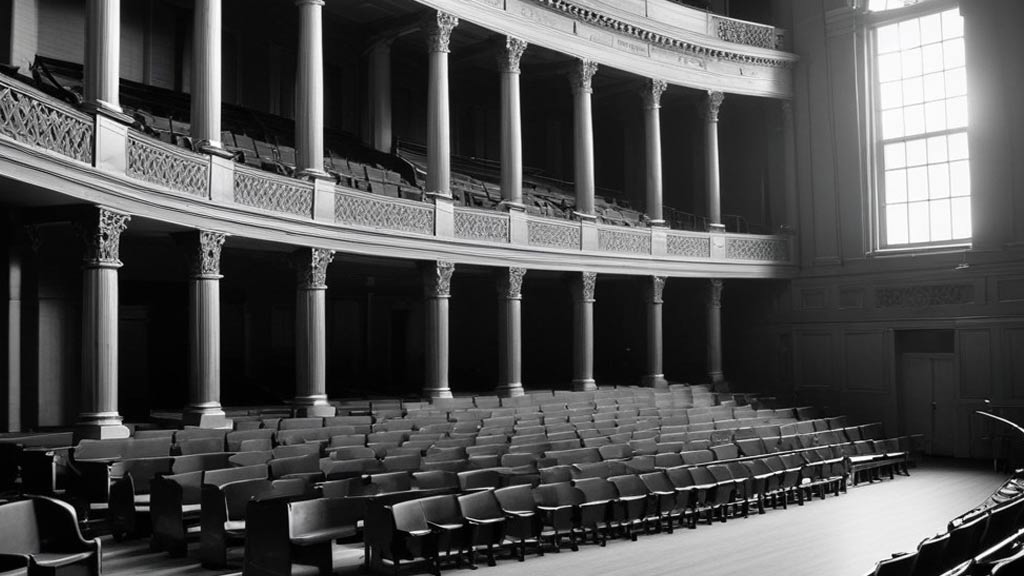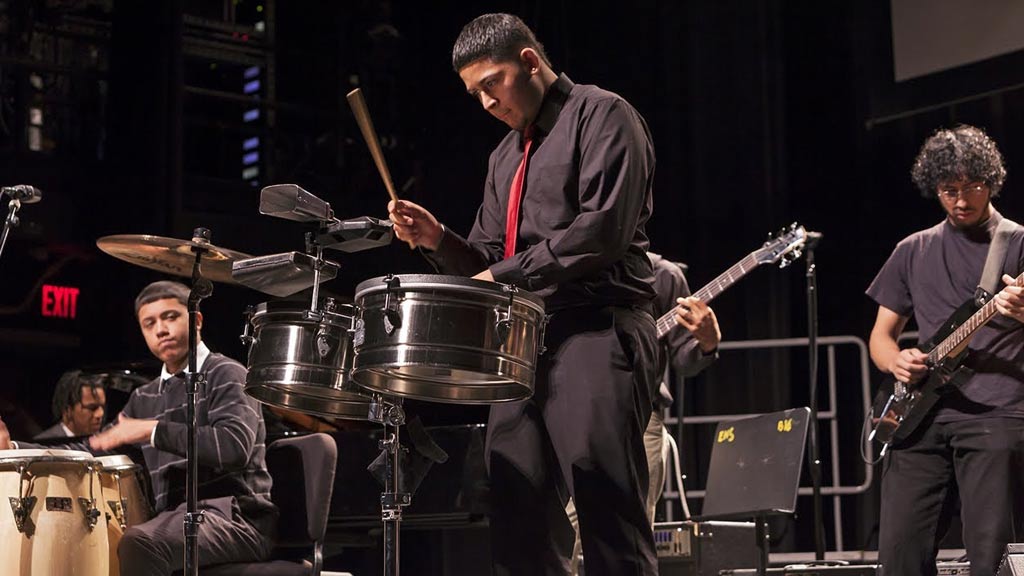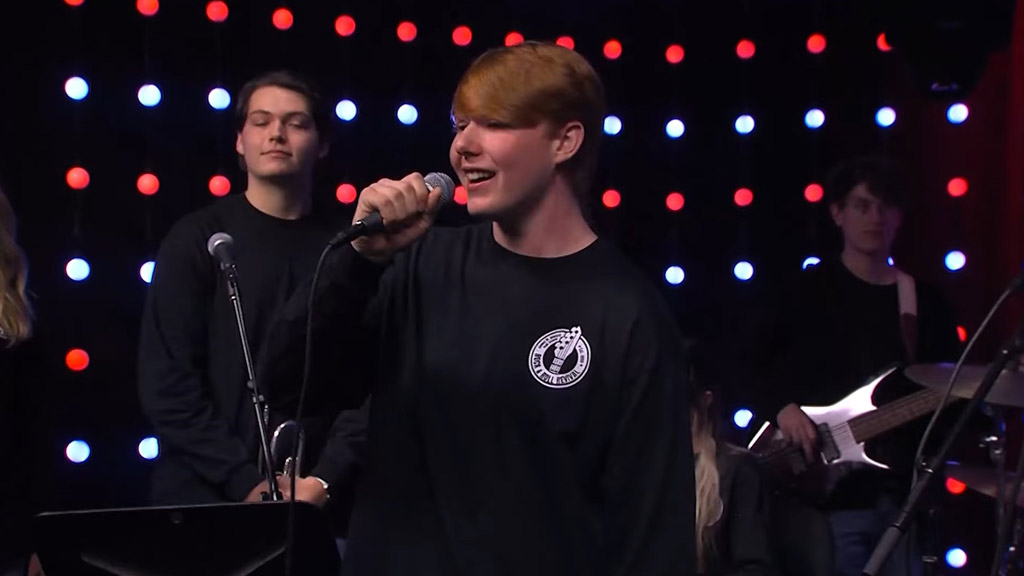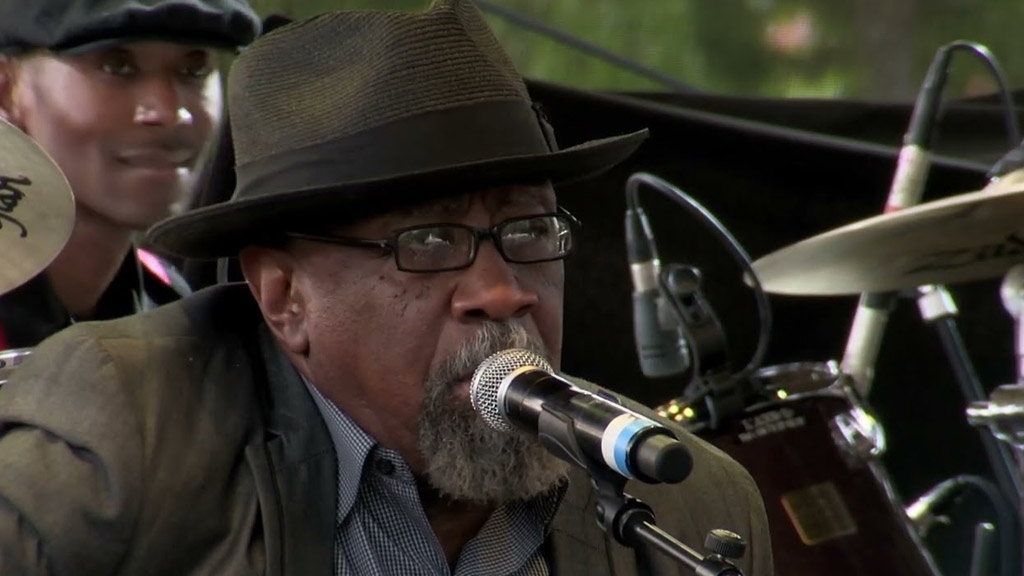Situated in Boston, Massachusetts, the Boston Academy of Music boasts a rich and storied history dating back to its founding in 1833 by Lowell Mason and William Channing Woodbridge.
From its inception, the academy stood as a pioneering institution, dedicated to the advancement of musical education in the United States.
Over the decades, it has undergone periods of revival and transformation under the leadership of visionaries such as Richard Conrad and Peter Terry.
Today, the academy continues to uphold its legacy as a premier center for musical education and performance, shaping the cultural landscape of Boston and leaving an indelible mark on the nation’s musical heritage.
History of Boston Academy of Music
The Boston Academy of Music, founded in 1833 by Lowell Mason, is a significant milestone in the history of music education in the United States.
Mason, a native of Massachusetts, was a versatile musician who played organ, piano, flute, and clarinet.
Inspired by the teachings of Swiss educational reformer Johann Heinrich Pestalozzi, Mason emphasized the importance of the student-teacher relationship in music education.
This approach transformed music education in America, leading to the establishment of the Boston Academy of Music, the country’s first school fully devoted to music education for children.
Founding and Early Years (1833-1982)

The Boston Academy of Music was established in 1833 by Lowell Mason and William Channing Woodbridge, two prominent figures in the burgeoning American music scene of the 19th century.
Their vision was to create an institution dedicated to the advancement of musical education, providing aspiring musicians with the necessary training and resources to excel in their craft.
Housed initially at the Odeon on Federal Street, the academy quickly gained recognition as a pioneering force in music education, attracting students and faculty from across the country.
Revival and Transformation (1982-2011)
After a period of dormancy, the Boston Academy of Music experienced a revitalization in 1982 under the leadership of Richard Conrad, a distinguished singer and educator.
Conrad’s passion for music and commitment to excellence propelled the academy into a new era of growth and innovation.
During his tenure, the academy expanded its curriculum, embraced new technologies, and fostered collaborations with leading artists and organizations.
In 2003, recognizing the evolving landscape of the performing arts, the academy underwent a transformation, rebranding itself as “Opera Boston” while maintaining its commitment to artistic excellence and community engagement.
Resurgence and Renewal (2013-present)

In 2013, the Boston Academy of Music was reborn once again, this time under the stewardship of Peter Terry, a respected singer and impresario.
Terry’s leadership ushered in a period of resurgence and renewal, marked by a renewed focus on music education, performance, and outreach.
Under his guidance, the academy launched innovative programs, forged partnerships with local schools and cultural institutions, and expanded its reach to new audiences.
Today, the Boston Academy of Music stands as a vivid hub of musical activity, enriching the cultural landscape of Boston and beyond with its dedication to excellence and innovation.
Legacy and Impact
The legacy of the Boston Academy of Music is a testament to the enduring power of music to inspire, educate, and unite.
From its humble beginnings in the 19th century to its current position as a leading institution of musical education and performance, the academy has left an indelible mark on the cultural fabric of Boston and the nation.
Through its commitment to excellence, innovation, and community engagement, the Boston Academy of Music continues to shape the lives of aspiring musicians and audiences alike, ensuring that the transformative power of music endures for generations to come.
What Kind of Music Is Boston Known For?
Boston, the city in Massachusetts, has contributed significantly to the musical landscape of the United States.
From its rich history in rock and roll to its thriving contemporary music scene, Boston boasts a diverse array of musical styles that have left an indelible mark on the industry.
Let’s get into the multifaceted world of music that Boston is renowned for.
Rock and Roll Revival

Boston has long been associated with the rock and roll genre, particularly during the 1960s and 1970s.
Bands like Aerosmith, Boston, and The J. Geils Band emerged from the city’s rock scene, achieving international acclaim and shaping the sound of classic rock.
With their electrifying performances and iconic hits, these bands propelled Boston into the spotlight as a hub for rock music.
Folk and Singer-Songwriters
The folk music tradition thrives in Boston, with a legacy that traces back to the folk revival of the 1950s and 1960s.
Artists such as Joan Baez and Bob Dylan found a receptive audience in Boston’s coffeehouses and intimate venues, inspiring a new generation of folk musicians.
Today, the city continues to nurture talented singer-songwriters who draw upon folk influences to craft poignant and introspective music.
Classical Excellence
In addition to its contributions to popular music, Boston boasts a thriving classical music scene that rivals any in the world.
The city is home to prestigious institutions such as the Boston Symphony Orchestra and the New England Conservatory, which have nurtured generations of classical musicians.
From symphonic masterpieces to avant-garde compositions, Boston remains a bastion of classical excellence.
Jazz and Blues Heritage

Boston’s musical heritage extends to jazz and blues, with a rich tapestry of clubs and venues that have hosted legendary performers over the years.
From the swinging sounds of jazz to the soulful strains of blues, the city’s diverse neighborhoods provide a vivid backdrop for live music experiences.
Jazz greats like Duke Ellington and Billie Holiday graced Boston’s stages, leaving an indelible imprint on its musical identity.
Hip-Hop and Urban Culture
In recent decades, Boston has emerged as a dynamic hub for hip-hop and urban culture, with a burgeoning scene that reflects the city’s diversity and creativity.
Local artists like Guru, Ed O.G., and Slaine have made significant contributions to the hip-hop genre, showcasing the vivid energy of Boston’s urban landscape.
From underground rap battles to sold-out concerts, hip-hop continues to thrive in the heart of the city.
Indie and Alternative Innovation
Boston’s music scene is also characterized by its indie and alternative spirit, with a thriving community of artists pushing the boundaries of genre and experimentation.
From indie rock bands to avant-garde solo acts, the city fosters a culture of innovation and creativity.
Venues like The Sinclair and Great Scott provide platforms for emerging artists to showcase their talent and connect with audiences.
Electronic and Experimental Sounds
In the realm of electronic and experimental music, Boston serves as a breeding ground for innovation and sonic exploration.
From synthesizer pioneers like Wendy Carlos to electronic music festivals like Together Boston, the city embraces the cutting edge of sound technology and production.
Experimental artists and electronic musicians find inspiration in Boston’s eclectic mix of cultures and communities, pushing the boundaries of sonic possibility.
FAQs
What Was the Mission of the Boston Academy of Music?
The mission of the Boston Academy of Music was to advance musical education by providing comprehensive training to aspiring musicians, fostering a deep appreciation for music, and promoting excellence in performance and composition.
Who Were Some of the Notable Students of the Boston Academy of Music?
Some notable students of the Boston Academy of Music include composer Amy Beach, conductor Arthur Fiedler, and singer Adelaide Phillipps, among others, who went on to achieve significant success and acclaim in their respective fields.
How Did the Boston Academy of Music Influence Music Education in the United States?
The Boston Academy of Music played a pivotal role in shaping music education in the United States by pioneering innovative teaching methods, establishing high standards of excellence, and serving as a model for other music institutions across the country.
Wrap Up
The Boston Academy of Music stands as a testament to the enduring power of music to inspire, educate, and unite communities.
From its humble beginnings in the 19th century to its current position as a leading institution of musical education and performance, the academy has remained steadfast in its commitment to excellence and innovation.
Through its rich history of revival, transformation, and renewal, it has left an indelible mark on the cultural fabric of Boston and the nation, shaping the lives of countless musicians and audiences alike.
As it continues to evolve and adapt to changing times, the Boston Academy of Music remains a beacon of musical excellence, ensuring that its legacy will endure for generations to come.
Jaclyn Lowe